
Gut Feelings: Exploring the Gut-Brain Axis and Its Impact on Mental Health
The Gut-Brain Axis Explained The gut-brain axis is a
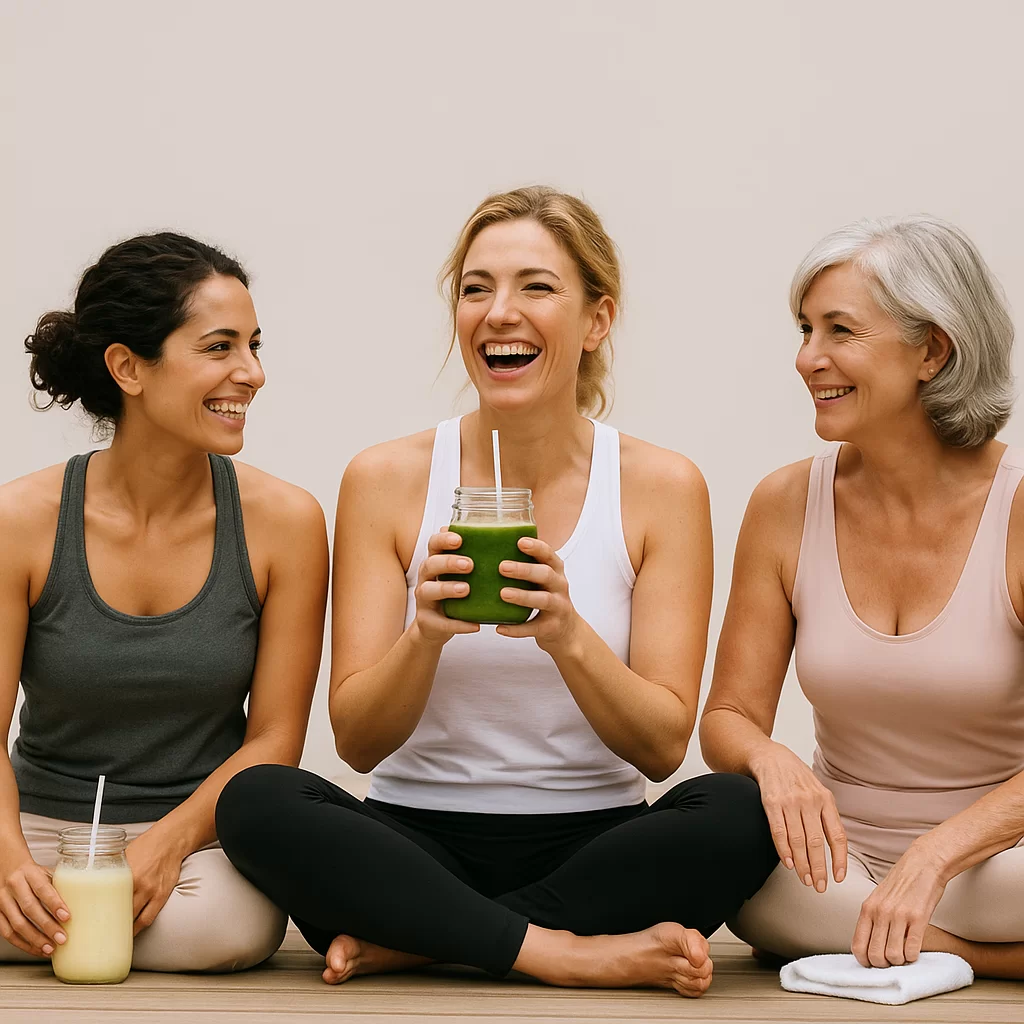
The world of wellness is brimming with options, and collagen supplements stand out as a popular choice for those seeking to nurture their vitality from the inside out. Yet, navigating terms like ‘marine’, ‘bovine’, ‘hydrolyzed’, and ‘peptides’ can feel overwhelming when trying to choose the right support for your goals.
At Timeless Radiance, we believe in empowering you with clear, science-backed information.
This guide cuts through the confusion, offering a transparent comparison between the two most common sources – marine and bovine collagen – so you can make an informed choice for your unique health journey. We’ll explore the science behind how they work, what the research suggests and why understanding the source, processing, and quality matters for achieving that sought-after radiant glow that truly reflects inner well-being.
Before comparing sources, let’s briefly touch upon why collagen is so vital. As the most abundant protein in our bodies, collagen forms the fundamental scaffolding for our skin, bones, tendons, joints, and other connective tissues. It provides essential strength, structure, and elasticity.
However, our natural production begins a subtle decline from our mid-20s, decreasing by approximately 1-1.5% each year thereafter, you can read more about “Skin Collagen Over Lifestages” in the published research.
This gradual depletion can accelerate significantly during and after menopause, with some studies suggesting up to 30% of skin collagen can be lost in the first 5 years post-menopause.
This natural change contributes to visible signs like wrinkles, reduced skin firmness, and changes in joint comfort. Understanding this process highlights why consciously supporting our body’s collagen resources becomes increasingly important for maintaining resilience and vitality throughout life.
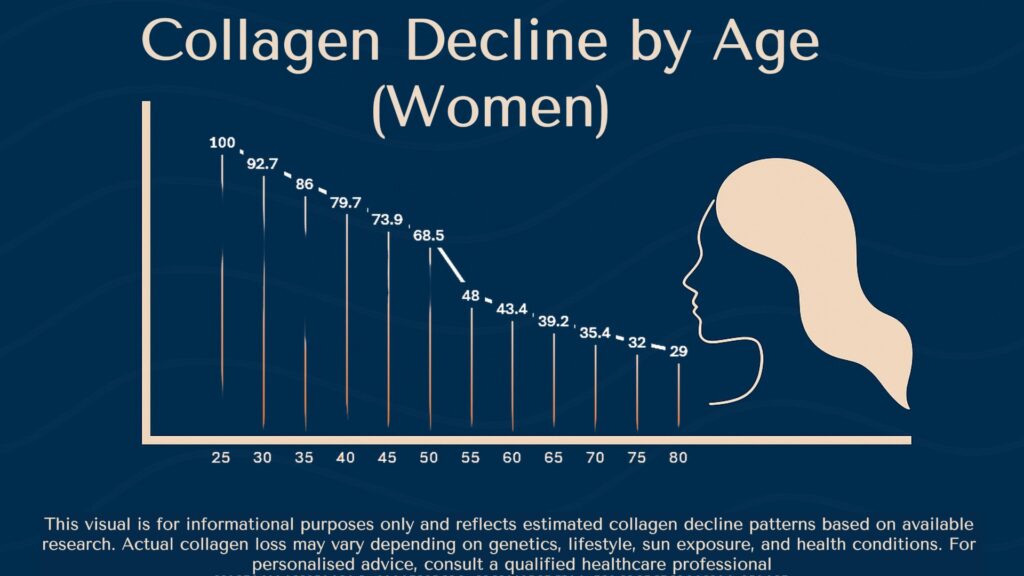
Our bodies utilize numerous types of collagen – around 28 have been identified! You can read more about the types of collagen in the “Skin Collagen through the Lifestages” research. However, three types are particularly dominant and relevant when discussing health and supplementation.
The powerhouse, making up about 90% of your body’s collagen. It’s the primary structural component of your skin, bones, tendons, and ligaments, providing tensile strength and integrity.
Type II collagen is predominantly found in cartilage, acting as the main structural protein that provides cushioning and support for your joints
Often found alongside Type I, particularly in the skin, Type III collagen is also vital for the structure of muscles, blood vessels, and internal organs. It plays a key role in the initial stages of tissue repair and contributes to skin’s youthful elasticity.
Now, let’s delve into the specifics of the two most popular supplement sources, comparing them across key factors to help you decide.
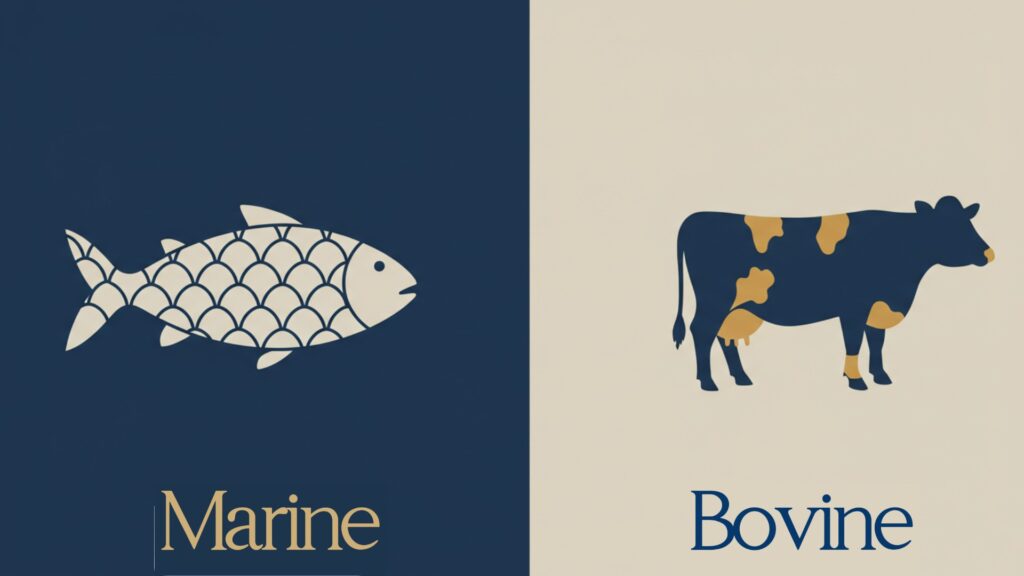
Bovine collagen is derived from cattle, typically extracted from their hides. High-quality bovine supplements focus on providing primarily Type I and Type III collagen, reflecting the types most abundant in human skin, bones, and connective tissues.
Marine collagen comes from fish, usually extracted from their skin and sometimes scales. It is predominantly composed of Type I collagen, making it a popular choice for those focusing specifically on skin, hair, and nail benefits.
You might hear claims that one source is inherently “better absorbed” than the other.
While our bodies efficiently digest native collagen from food into basic amino acid building blocks, high-quality supplements use a process called enzymatic hydrolysis. This process breaks the large, complex collagen molecules down into smaller chains called collagen peptides.
The science points to the size (molecular weight, measured in Daltons or kDa) of these peptide pieces being crucial for how well they can be absorbed and utilized by the body (Bioavailability). Research consistently shows that hydrolyzed collagen with a low molecular weight profile exhibits superior absorption through the gut lining compared to larger peptides or the original large collagen molecules, this is detailed in ” Hydrolysed Collagen – Sources and Applications” published in MDPI. This is an important differentiation, the analogy below helps clarify it further.
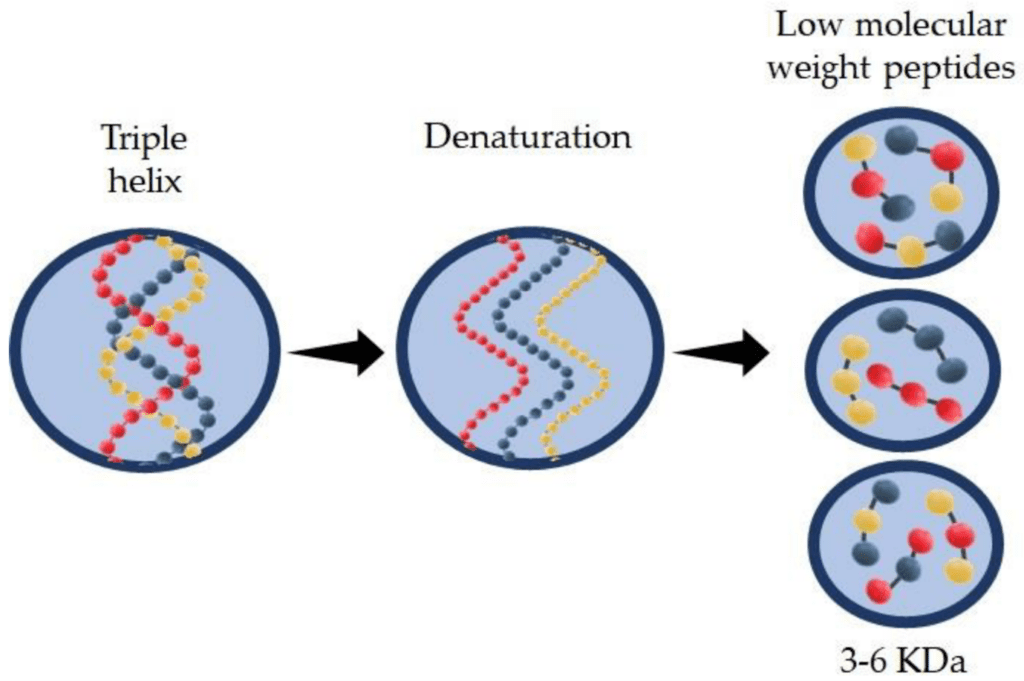
Eating collagen-rich food is like getting a large LEGO structure; your body digests/breaks it down and delivers individual LEGO bricks (amino acids). Your body absorbs these well and uses them to build whatever it needs.
Hydrolyzed supplements aim to deliver small, pre-assembled LEGO sections (collagen peptides) plus potential building instructions (bioactive signals). The smaller these sections (lower molecular weight), the easier they are to transport through the gut wall to where they are needed.
While beneficial effects are seen in studies using peptides generally under 5kDa, specific research indicates that smaller peptides, particularly those below 3kDa – 3.5kDa, are likely optimal for absorption and bioavailability, potentially leading to greater efficacy.
High-quality hydrolysis aims to achieve this optimal small peptide size, like the 2-3kDa profile of our chosen source, COLLinstant®, regardless of whether the original source was bovine or marine.
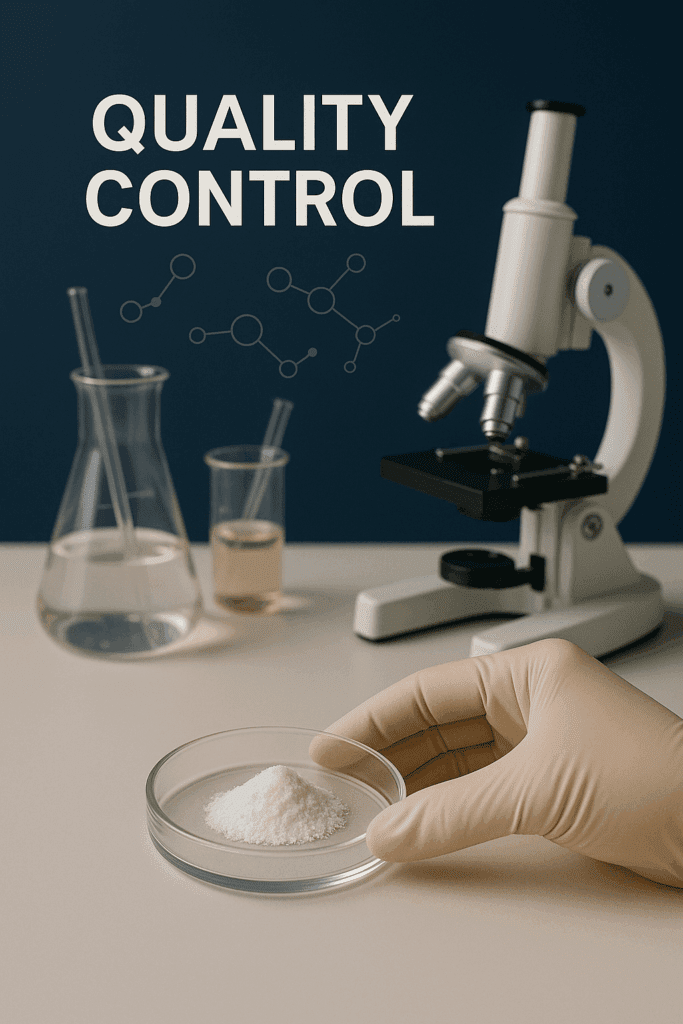
Optimal absorption and potential bioactivity often depend more on effective hydrolysis creating small, easily absorbed peptides (ideally <3kDa) than simply the original animal source itself.
Ultimately, the benefits of hydrolyzed collagen stem from these smaller peptides created during processing. The resulting peptide size (<3kDa) is more critical for absorption and reaching target tissues than the animal source itself. In fact, the specific ‘bioactive peptides’ created through quality hydrolysis are now understood to have targeted signalling effects in the body, stimulating cellular activity like collagen production.
This is a fascinating area of nutritional science, with significant research exploring how different peptides might be used for targeted health support, moving beyond just basic building blocks. You can learn more about these powerful molecules in our dedicated article.
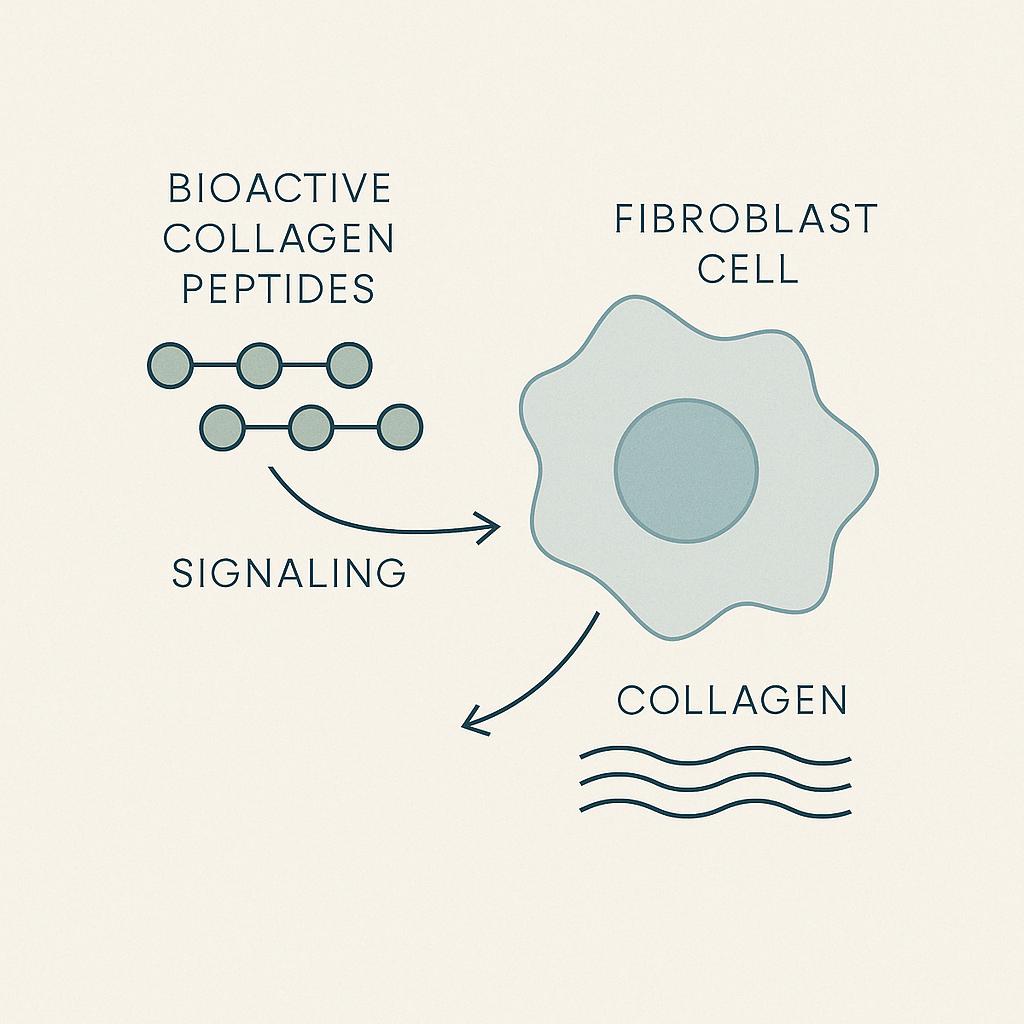
To nurture your joints and promote overall well-being during menopause, consider incorporating these scientifically supported supplements and nutrients into your daily routine.
The combination of Type I and III peptides may provide a more comprehensive range of building blocks and signals for overall tissue health.
When considering efficacy, particularly for skin health, it’s crucial to look at robust scientific evidence. We rely primarily on systematic reviews and meta-analyses.
A meta-analysis is a powerful type of research that statistically combines the results from multiple independent studies on the same topic, providing a stronger overall conclusion than any single study alone.
This approach ensures a more reliable picture than potentially biased single-supplier research. A significant 2023 meta-analysis published in the peer-reviewed journal Nutrients, which analyzed data from numerous clinical trials involving over 1700 participants, concluded that oral supplementation with hydrolyzed collagen peptides leads to statistically significant improvements in skin hydration, elasticity, and wrinkles compared to placebo. These peptides are thought to work not just by providing building blocks, but also by signalling skin cells (fibroblasts) to produce more of their own collagen and other matrix components like hyaluronic acid, supporting skin, joint as well as bone health. You can read in details about the Benefits of Hydrolysed Collagen, and it’s Bioactive Peptides functions in our dedicated articles.
Dietary considerations are a key differentiator where the source matters significantly:
Bovine Collagen: Can be certified according to specific dietary laws. Timeless Radiance uses COLLinstant® Bovine collagen, which is certified Halal and Kosher, ensuring suitability for individuals following these practices.
Marine Collagen: Suitability requires careful checking. For Kosher observance, the fish source must have fins and scales (excluding shellfish). For Halal observance, specific certification is often sought, confirming the fish source and ensuring no non-Halal processing aids were used.
Want to learn about our upcoming Collagen Biosynthesis formulation?
With hydrolyzed bovine collagen, vitamin C, zinc, copper, this advanced blend is designed to promote collagen production and skin health.
Subscribe to our newsletter to get exclusive early access, a 25% discount code, and updates on the release date.
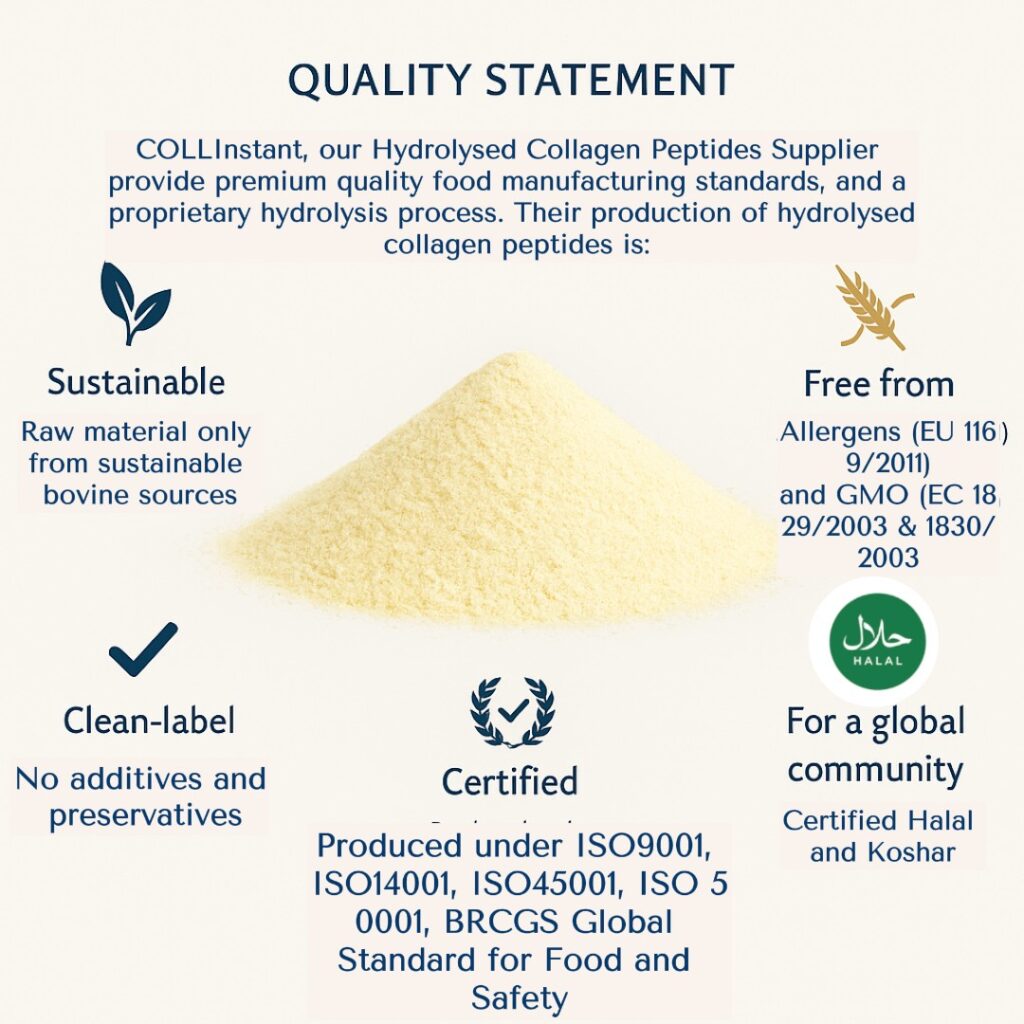
Many people search for the “best” collagen supplement, but the ideal choice truly depends on your individual needs, goals, and values. Instead of seeking one single “best” product, focus on understanding the key quality indicators that contribute to effectiveness and safety. Consider these factors when making your choice:
COLLinstant® Quality Control, and Technical Specifications are accessible here.
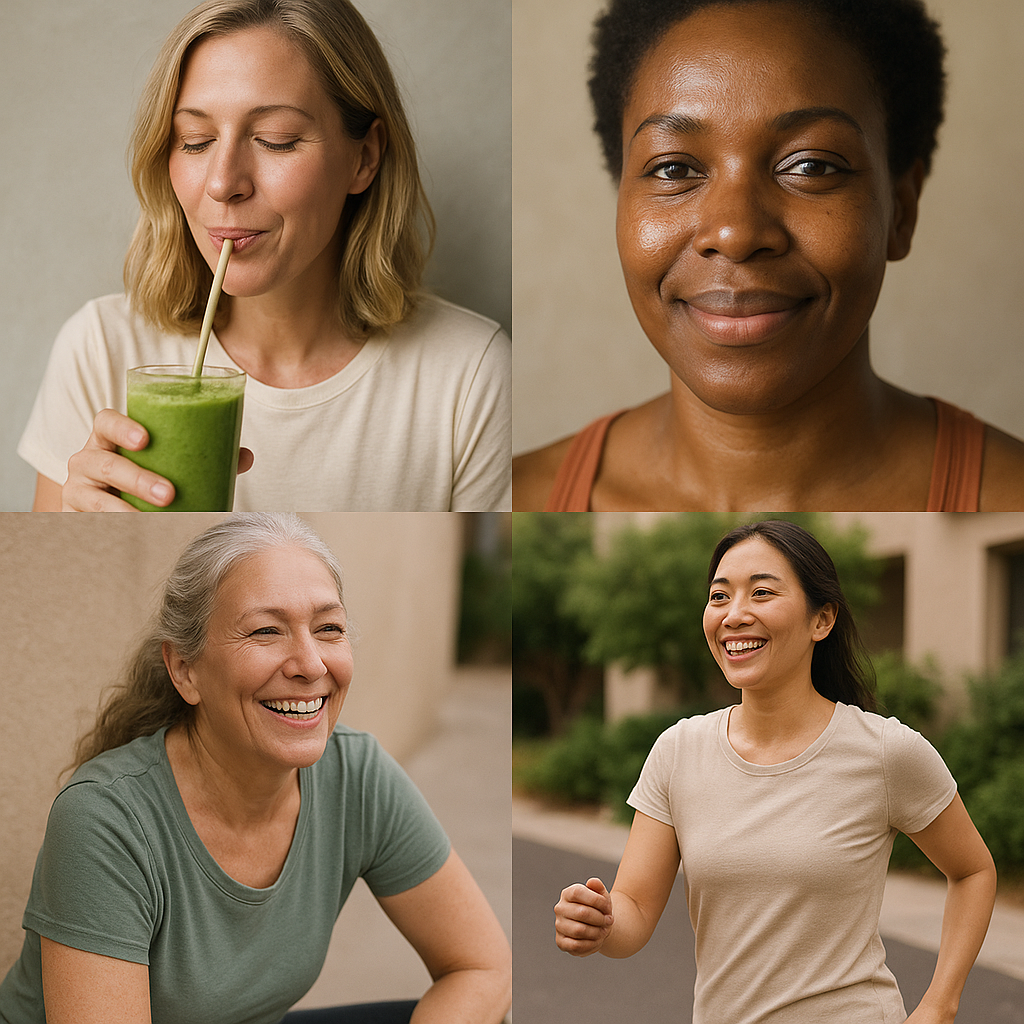
Choosing between marine and bovine collagen involves considering several factors. While marine collagen focuses primarily on Type I, high-quality Bovine collagen offers comprehensive support with both Type I and Type III. Crucially, optimal absorption and potential bioactivity for either source depend heavily on effective hydrolysis resulting in low molecular weight peptides (ideally <3kDa).
When making your choice, consider:
By understanding the science and prioritizing quality processing, you can confidently select a collagen supplement that aligns with your values and supports your journey towards holistic wellness and timeless radiance from within.
Not necessarily. Absorption depends primarily on the molecular weight of the collagen peptides, achieved through hydrolysis. High-quality bovine collagen hydrolyzed to a low molecular weight (<3kDa) can be absorbed just as effectively as similarly processed marine collagen
Both Type I and Type III collagen are crucial for skin health. Type I provides the main structure, while Type III contributes to elasticity and is important in tissue repair. Bovine collagen typically provides both, while marine collagen is primarily Type I. Furthermore, essential vitamins and minerals including Vitamin C, Zinc, and Copper act as necessary co-factors for your body's own collagen and elastin synthesis. To potentially optimize the effectiveness of supplementation for skin health, consider formulations that also include these supportive nutrients.
Yes, the COLLinstant® Bovine collagen used in Timeless Radiance products is certified Halal and Kosher.
High-quality bovine collagen peptides are generally considered safe with few side effects for most people. As with any supplement, if you have specific health conditions or concerns, it's always best to consult your healthcare provider. Ensuring the product is sourced reliably and tested for purity minimizes risks.

Let us know what you’d like to see on our blog. We’re always open to ideas and would love to hear from you!

The Gut-Brain Axis Explained The gut-brain axis is a

The Science Behind Collagen for Healthy Skin If you’re

What is “Collagen Banking”? Proactive Strategies for Long-Term Skin
Subscribe for Exclusive Insights